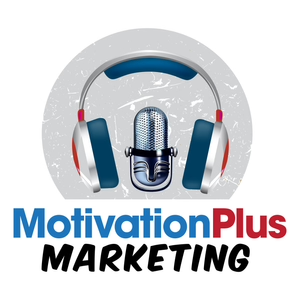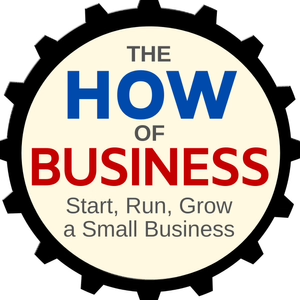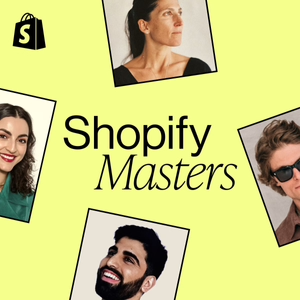![The Entrepreneur Next Door 🏡 - [15] BRUCE FELDMAN M.D: Good medicine is thinking but great medicine is thinking beyond the obvious.](https://storage.googleapis.com/goodpods-images-bucket/episode_images/cf3450dfb84cb8cadd89b1d7ebe37b0f17e540bc858623475bdb170a350aa24c.avif)
[15] BRUCE FELDMAN M.D: Good medicine is thinking but great medicine is thinking beyond the obvious.
06/08/22 • 50 min
A successful doctor with medical director-level lucrative positions is asked a life-changing question by his boss: "Bruce, why are you doing this job? You're excited when you talk about people that are getting screwed by the system. You only seem to care about the patient?"
For a long time, Bruce's stated goal was to change the way we deliver healthcare in this country. But, after twenty years of trying to execute his goal, he felt too distant from patients. The entire process was broken, and he realized that he wouldn't be able to make an impact within the current system.
And the rest, as they say, is history. Bruce leaves the glamour of executive positions and dives into entrepreneurship.
Dr. Feldman goes into private practice where the funding comes directly from the patient (not insurance), and as a doctor, he was able to develop a close relationship with the patient - Concierge-stye, or as Bruce marketed his practice, My Personal Doc - a practice where the patient pays for services and insurance isn't typically involved. A one-on-one service where he can actually control the outcome.
Bruce differentiates his practice by getting outside of conventional medicine (treating the symptoms, not the underlying cause) to actually try to figure out why a patient didn't feel well.
Bruce expands his knowledge base into non-traditional medicine and finds out that it often provides clues to underlying causes.
At this point, Bruce gives us quick education and explains why ignoring non-traditional medicine comes at the expense of patients' well-being and positive long-term outcomes.
A successful doctor with medical director-level lucrative positions is asked a life-changing question by his boss: "Bruce, why are you doing this job? You're excited when you talk about people that are getting screwed by the system. You only seem to care about the patient?"
For a long time, Bruce's stated goal was to change the way we deliver healthcare in this country. But, after twenty years of trying to execute his goal, he felt too distant from patients. The entire process was broken, and he realized that he wouldn't be able to make an impact within the current system.
And the rest, as they say, is history. Bruce leaves the glamour of executive positions and dives into entrepreneurship.
Dr. Feldman goes into private practice where the funding comes directly from the patient (not insurance), and as a doctor, he was able to develop a close relationship with the patient - Concierge-stye, or as Bruce marketed his practice, My Personal Doc - a practice where the patient pays for services and insurance isn't typically involved. A one-on-one service where he can actually control the outcome.
Bruce differentiates his practice by getting outside of conventional medicine (treating the symptoms, not the underlying cause) to actually try to figure out why a patient didn't feel well.
Bruce expands his knowledge base into non-traditional medicine and finds out that it often provides clues to underlying causes.
At this point, Bruce gives us quick education and explains why ignoring non-traditional medicine comes at the expense of patients' well-being and positive long-term outcomes.
Previous Episode
![undefined - [14] RAMON RAY: I love the excitement, overcoming uncertainty and the risk of failure.](https://storage.googleapis.com/goodpods-images-bucket/episode_images/7ac2fba41015007399a92763f096f6a925278e33fc214cbba52e9ee6cc20cf83.avif)
[14] RAMON RAY: I love the excitement, overcoming uncertainty and the risk of failure.
/men(t)SH/ a person of integrity and honor.
I haven't come across too many people deserving of this title. Ramon, who I've known for over eight years, has been gracious, humble, caring, and helpful, with an infectious smile and positive, uplifting energy. His success is a byproduct of who he is; a mensch.
Ramon has never been a serial entrepreneur; he started a few side hustles while working for the UN, income-generating projects born out of a desire to create, excitement about the tackling the unknown coupled with the fear of uncertainty and the risk of failure.
"I like to start stuff. "
He gets fired from the UN, which pushes him into entrepreneurship with the added pressure of having to provide for his family, including his children. As he says, "the power of broke drove me to build a business, but I was fortunate to have saved enough to give me a (six months) runway to make this happen. "
"I'm not aspiring to be someone I'm not...I'm just a regular guy who brushes his teeth and tries to make a living. "
Personal branding is a choice - especially for small businesses from $100K-$500K/year.
"We're all imperfect. Spirituality, or having faith, keeps you grounded."
Ramon is open about his past struggles with depression, including suicidal thoughts. He labels it "The Entrepreneur's Depression" - it affects men primarily who feel like a failure if they can't provide for their family.
Ramon's advice for anyone suffering from depression: (1) Get a mentor/friend (2) explain to your family what is going on (3) Don't bite more than you can chew (4) surround yourself with friends that understand and uplift you. (5) Have some grit but be honest with yourself: perhaps this fight is not for you, a ball game you shouldn't be playing.
Next Episode
![undefined - [16] TRICIA BROUK: the speaking coach](https://storage.googleapis.com/goodpods-images-bucket/episode_images/bf7d064994aff6bf412674cdf65754643c06252bce34656a81e1609780d64333.avif)
[16] TRICIA BROUK: the speaking coach
Everyone wants to get on stage and speak. Most of us are scared s#(#*@less about public speaking but overcome our fear for what we perceive will be monetary rewards that are worth the anxiety and efforts.
Before you dream about being a speaker, listen to these revealing, behind-the-scenes insights into what it really takes to succeed.
Tricia's high school yearbook blurb might as well have been "less likely to be a speaker." All she wanted to be "from the moment I saw my sister dance, I knew all I wanted to be was a dancer." She moves to New York City to pursue what would typically be a longshot career dancing with some of the most recognized names in the business.
"My dance career was complete, and I moved on."
What follows is an intriguing career that spins off Tricia's talents as a professional dancer; she is catapulted into choreography, directing, and producing, none of which she's done before.
There are many insightful nuggets from my conversation with Tricia, like " I was never someone who was entitled... when you think you can do something, that is you not owning the truth that you know you can. Reframe "I think I can" - your best isn't good enough and thinking you can means you don't believe you can."
If you're looking for accolades and adoration as a speaker, you're doing it for the wrong reasons. It has to be about being of service, and when you're clear about that, you'll become a better speaker."
Shed off what you think you know about speaking and listen to what it takes to succeed.
One book that influenced Tricia? Wait for it... listen to find out. It's a book about loyalty and the truth.
LinkedIn: https://www.linkedin.com/in/triciabrouk
Web: www.triciabrouk.com
If you like this episode you’ll love
Episode Comments
Generate a badge
Get a badge for your website that links back to this episode
<a href="https://goodpods.com/podcasts/the-entrepreneur-next-door-197970/15-bruce-feldman-md-good-medicine-is-thinking-but-great-medicine-is-th-21375923"> <img src="https://storage.googleapis.com/goodpods-images-bucket/badges/generic-badge-1.svg" alt="listen to [15] bruce feldman m.d: good medicine is thinking but great medicine is thinking beyond the obvious. on goodpods" style="width: 225px" /> </a>
Copy




